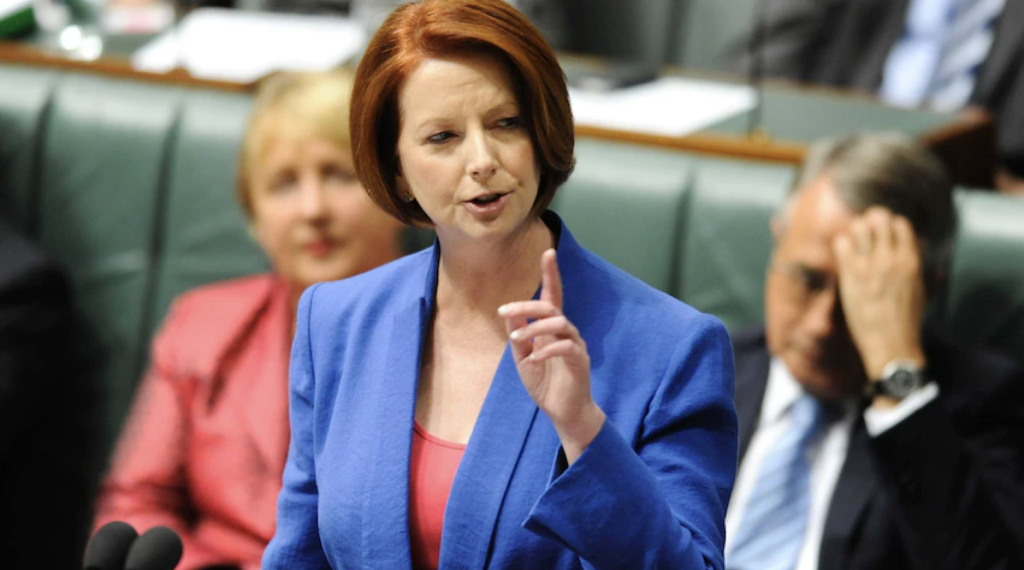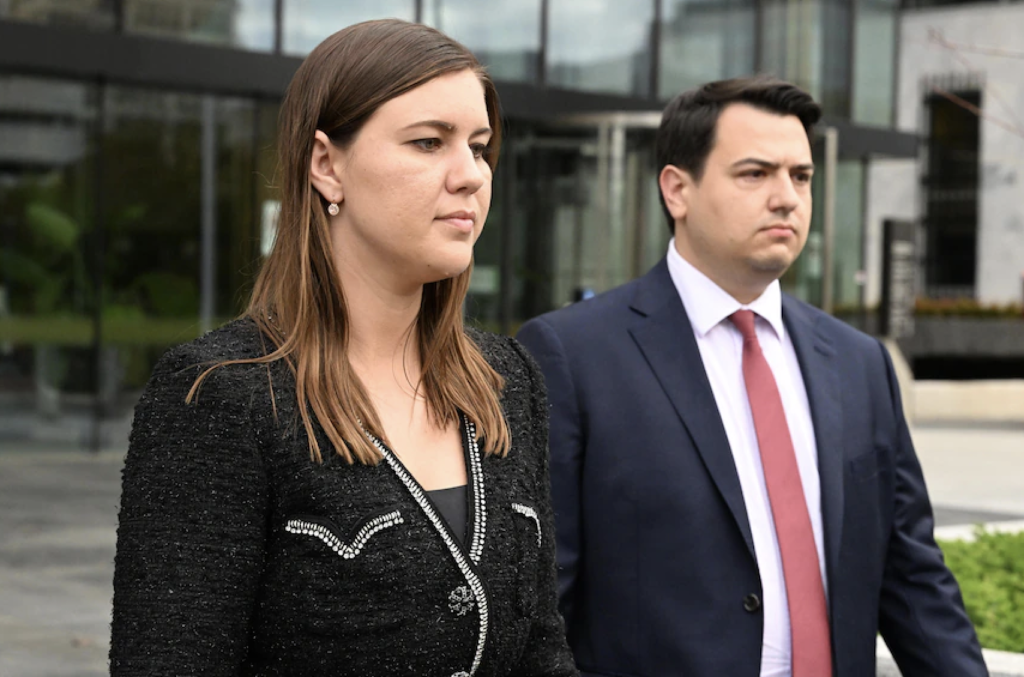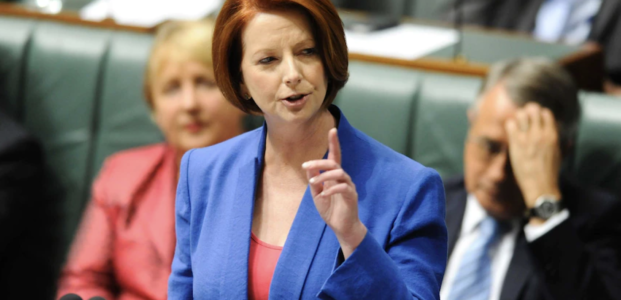CW: This article includes discussion of sexual assault, rape and gender-based bullying, which some readers may find distressing. If you need to reach out to seek help, contact 1800RESPECT.
Back in 2012, Australian politics and Parliament House was a seemingly different place. The country was still reeling from the election of its first female Prime Minister, Julia Gillard, in 2010. The Labor Party was in power, and had been plagued by a series of scandals and increasingly prominent personal attacks from both inside and beyond Parliament’s walls.
2012 was also the year Julia Gillard delivered her famous misogyny speech, which has imbued the Australian public psyche and media, as well as paved the way for discussions about feminism, sexual misconduct and the treatment of women in positions of power, ever since. The speech, broadcasted on 9 October, comprised of Gillard reprimanding opposition Tony Abbott for a series of sexist comments and behaviour, including being photographed at an anti-carbon tax rally surrounded by placards naming her “Juliar”, the then-Greens leader “Bob Brown’s bitch” and calling on others to “ditch the witch”. There were also placards that attacked Gillard’s wardrobe and childlessness, presented through an empty fruit bowl.
In addition, Gillard’s speech called out Abbott for comments centring around men being more suited to “exercise authority”, issue commands and uphold positions of power due to their so-called superior physiology and temperament.
These comments were backwards and appalling then, and they’re just as much now.

It’s been ten years since that speech shook an entire country, calling out Australian politics for its underlying misogyny, prejudice and lack of respect for women. Ten years later, and Australian Parliament is still swarming with allegations of sexual misconduct, sexism and bullying.
At the forefront: Brittany Higgins, a Liberal Party staffer, coming forward with allegations that her colleague, Bruce Lerhmann, raped her in Parliament House in March 2019 while she was drunk and asleep. Higgins has stated that prior to the alleged rape, Lerhmann had previously tried to kiss her at a work event, which she rejected.
She also emphasised that upon waking up during the rape, she had told Lerhmann to “stop” and said “no” repeatedly, which he ignored. What this shows is the blatant disregard for consent from men in power, taking advantage of women when they are vulnerable.

The trial between Higgins and Lerhmann is now underway in Canberra’s Supreme Court. During the trial, she has revealed that she felt “trapped” and “non-human”, as well as had fears that telling her superiors about her experiences would risk her losing her job and feeling “disposable”. Clearly, this indicates that there continues to be a prioritisation of men’s reputations and institutions where power dynamics are constantly being abused, exploited and negotiated. It shows the preference (or rather, expectation) for women to “sweep” their stories under a patriarchal rug instead of calling out their abusers.
Even more problematic, especially in modern Australia: the fact that any woman who comes forward about her sexual assault and alleged rape is instantly assumed to be lying or guilty, resulting in punishing the victim instead of holding the perpetuator as accountable.
Any sexual activity without consent is sexual assault. Being under the influence is not consent, regardless of a person’s stature, job or position in society. And it’s not the job of any outsider to decide whether another person is fit to participate in sexual activities and behaviours.
At the core, it may be easier to simply brand it as “another day, another sexual misconduct scandal in Australian politics”. It certainly feels that way these days. But if we really unpack this, there’s no denying that the scope of our federal politics fails to administer positive messages about advocating proper consent and eradicating misogyny.
It’s all quite ironic, isn’t it? Over the past ten years and much longer before that, our Australian Government has continued to let both Brittany Higgins and us down in being role models for ensuring the integrity, dignity and respect of its female employees. With this in mind, it’s clear to say that the Australian political sphere hasn’t done close to enough in creating a workplace environment where women are given the respect they deserve. In 2022, as Julia Gillard’s speech echoes around us, it’s still uncertain to determine how much has actually changed in the past ten years.
It’s obvious that more needs to be done from the top in order to benefit the rest of a country. Just like it was back in 2012, it’s still very much on top of our national agenda to ensure women are treated with integrity and respect, given the space to transgress assumed gender roles and listen. Listen to the survivors that come forward.

